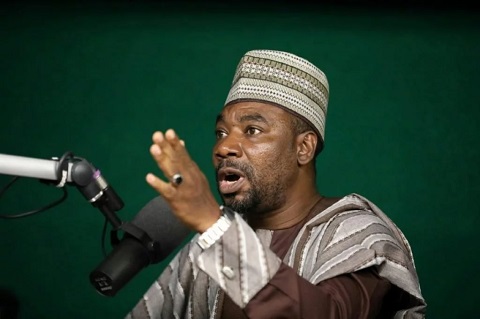Eighty percent of the buildings in Ibeju Lekki are unapproved, according to Dr. Oluyinka Olumide, Lagos State Commissioner for Physical Planning and Urban Development.
He told reporters this in a recent interview.
He stated, “You would agree with me that anybody passing through that corridor would see a number of estates designated. Just last Thursday and Friday, myself and the crew were on the Ibeju Lekki and Epe axes. We visited there, and based on our observations, more than 80% of them lack approval.
“The first step in the approval process is to obtain planning information regarding the zones assigned to such places. What we have here is agricultural in nature.
“The first step in the approval process is to obtain planning information regarding the zones assigned to such places. In this instance, what we have is agricultural land, which people are now purchasing from their family. Those lands would naturally be sold, as those families have no idea what use such land would find.
“Getting a fencing permit is the next step. In the event that you were unaware of the area’s zoning before to obtaining the fencing permission, you would have been able to determine its current designation. The arrangement then allows for a significant land expenditure to come after that.
According to Olumide, layout permission cannot be obtained if it is not zoned for the intended use or the reason for which it is being requested.
Thus, despite the fact that you can see every layer, people nevertheless choose to begin promoting. There are even those who have gone so far as to put their desired sizes on display. Imagine a diaspora person who wishes to donate money but doesn’t know how. Eventually, though, no approval is received. Because that location is not zoned for that use, we would not award the individual permit even if they sent the assignment and the survey to them, the commissioner clarified.
Similarly, Jide Odusolu, the CEO of Octo5 Holdings, claimed that fast expansion on the Lekki Peninsula after 2010 caused the masterplan to become warped, with newer estates circumventing outdated laws.
“The Lekki peninsula had a master plan that was updated under Babatunde Fashola and originally launched when Bola Tinubu was the governor,” he stated. Nearly every sizable estate in the Lekki corridor has approved layout plans, particularly those built between 2000 and 2008. The state government required it and strictly enforced it.
“However, with rapid growth beginning in 2010, the plans got skewed, and many of the smaller initiatives that sprang up purposefully tried to avoid the heavy infrastructure costs held by the developments from the legacy era.
“I’m sure studies with developers like Octo5 (Ocean Bay), UPDC (Pinnock Beach), Trojan Estate, Aircom (Northern Foreshore), Cityscape (Buenavista), Howard Roarks (Lake View), and Octo5 (Tortoise Bay) will show how they all paid exorbitant taxes while spending enormous sums of money on infrastructure without receiving any assistance from the government.”
Odusolu claims that in order to earn money internally, the government weaponized planning and titling, which disincentivizes compliance and results in uncontrolled growth.
Meanwhile, most of the estates had layout designs that were not coordinated to establish a planned city, according to Femi Oyedele, Managing Director of Fame at Oyster & Co. Nigeria.
He pointed out that the historic villages that the government eliminated from the plan were the towns that were not planned.
“In order to improve Lekki, the authorised estates along the east and west arterial roads—which descend to Akodo on the west side and Awoyaya on the east—must be removed to create room for the proposed highways.
“Lekki has to undergo the same kind of rehabilitation that Nasir El’Rufai did for Abuja. Over 3 million people live on Victoria Island and the Lekki Peninsula. Less than two million people live in Glasgow, which has twice as many roads as the Lekki Peninsula, the speaker stated.




